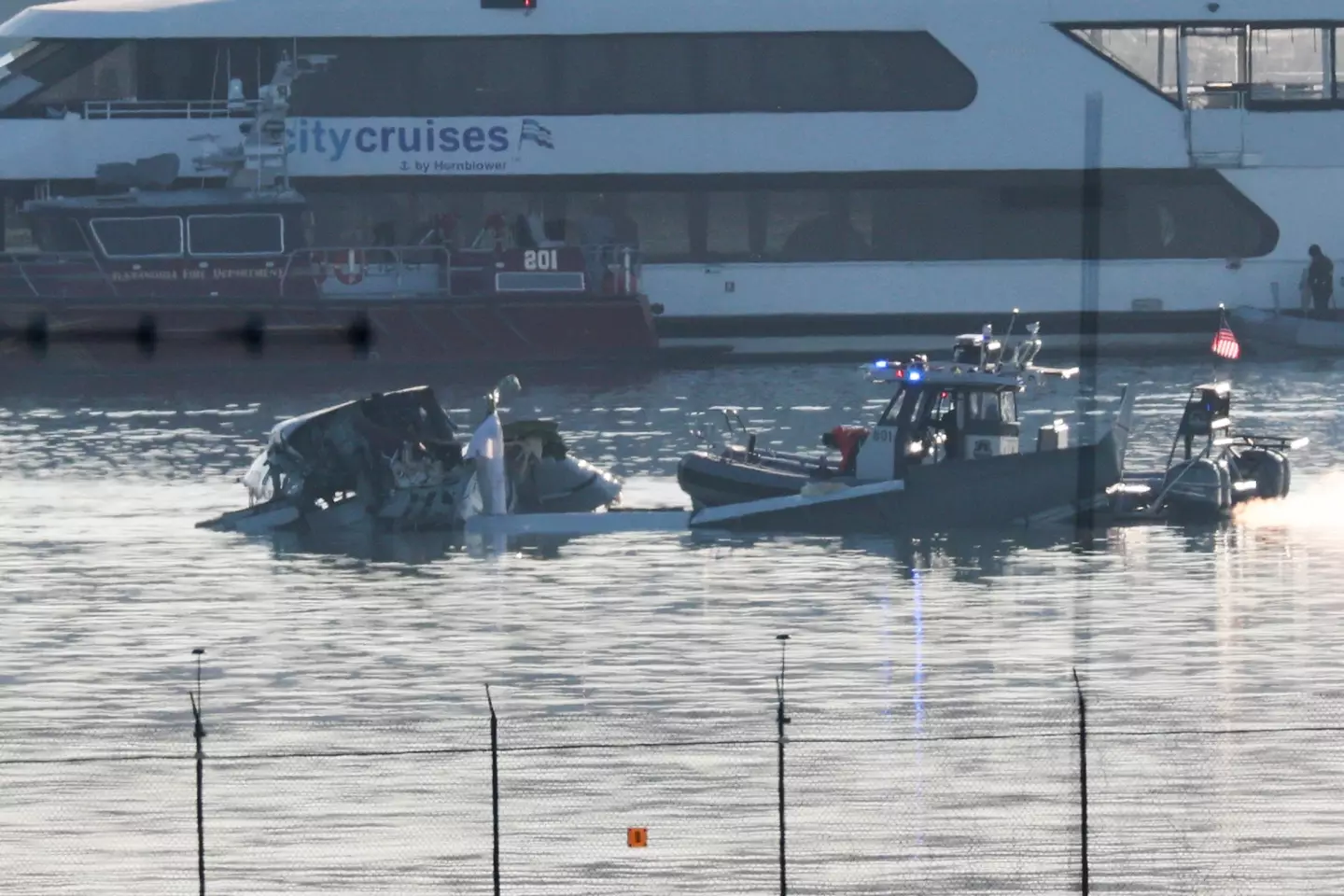Efforts to locate the bodies of those lost in last week’s plane crash over Washington, D.C. are ongoing.
On Wednesday, January 29, an Army helicopter with three soldiers aboard and an American Airlines flight carrying 64 passengers collided mid-air.
Following the collision, both aircraft crashed into the Potomac River, where rescue operations are still in progress to retrieve the victims.
As of now, 55 of the 67 individuals who perished have been found in the river.
The environment for the search teams has been described as ‘difficult’.
Matthew Schanck, a specialist in International Maritime Search and Rescue & Emergency Response, explained to BBC News: “The river is icy, it’s very cold, making it extremely challenging for the crews.”
“The cold significantly limits the time available to find and rescue any survivors,” he added.
The frigid temperatures have been so severe that a diver from the Metropolitan Police Department required hospitalization for a ‘hypothermia situation’.
The diver is now ‘doing fine’ after being discharged, according to John Donnelly, the Chief of Washington DC Fire and EMS.

“We’re pleased to announce he’s recovering well, and that’s the sole injury we’ve had today,” the chief mentioned, according to NBC News.
He further commented on February 2: “The salvage crews will continue to survey the scene today and prepare for ongoing efforts tomorrow.”
Rescue workers have also spoken about the ‘horrors’ they’ve witnessed during the operation.
Brian Entin from NewsNation relayed that a firefighter confided in him about being ’emotionally drained after confronting the crash’s devastation firsthand’.
In a subsequent tweet, Entin revealed: “The firefighter described the water as quite clear. Using flashlights, they encountered distressing sights upon arrival.”
Uncertainty persists regarding the cause of last week’s tragic collision, but there is hope that the black boxes from both aircraft will provide answers.
Senior Army aviation adviser Jonathan Koziol commented on the significance of the black boxes: “There’s a lot of speculation, but until we retrieve data from the black boxes, that’s the definitive source of information, and it will take time to analyze.”
If you are grieving and need support, reach out to GrieveWell at (734) 975-0238, or email [email protected].

